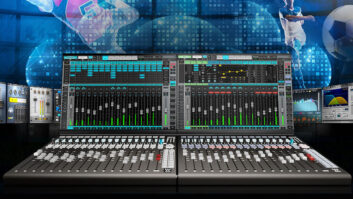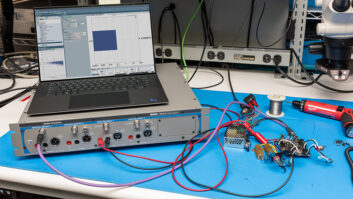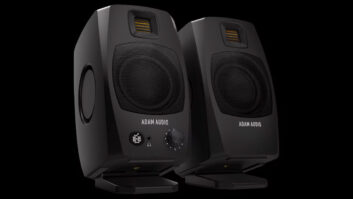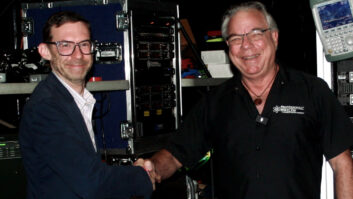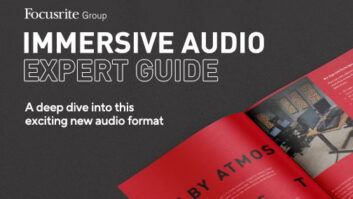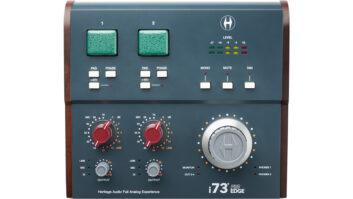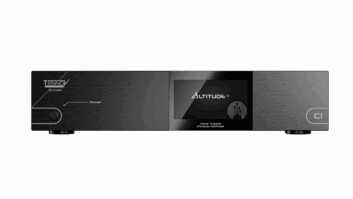In just a few years, Joe Trapanese has earned a reputation as a successful composer, arranger, orchestrator and music producer for film, television, multimedia, live theater and concerts.
Trapanese has worked on “The Raid: Redemption,” an Indonesian Silat martial arts film that he co-composed with Mike Shinoda of Linkin Park; a collaboration with Daft Punk on “Tron: Legacy,” and stints as arranger and orchestrator for “Percy Jackson & The Olympians: The Lightning Thief,” “What Happens in Vegas” and “Traitor.” His TV work includes original music for Sony’s “The Bannen Way” plus orchestrations and additional music for several seasons of the popular Showtime series “Dexter.”
And if that wasn’t enough, Joe has composed music for concerts and off-Broadway plays in New York city, most notably The Actor’s Company Theater (TACT) in productions that included T.S. Eliot’s “The Cocktail Party,” Arthur Miller’s “Incident At Vichy,” Milan Stitt’s “The Runner Stumbles,” Vaclav Havel’s “The Memorandum,” and Edward Bond’s “The Sea.”
Asked how working in such different disciplines has affected his work, Trapanese responds, “Theater work informs my music for film, TV and multimedia, much as the different work I do as a composer, arranger, orchestrator and producer influences each of those roles. The work intermingles and makes everything better. A lot of what I do is problem solving and dealing with clients, and the more experience you have with that, the better off you are.
“My goal is to do what I do in the best possible way,” Joe continues, “no matter what role I play in the process. It’s just exciting to be in a room with great artists and be called on to do what I do best, which is to blur the lines between categories.”
Collaborating with other artists is a central element that comes up again and again in our conversation: “I love collaborations because it’s the art of being part of something bigger than yourself. Working with directors, writers and producers elevates my work. I’m like an actor contributing another layer, so cooperation is essential. Musically I have been very fortunate to work with great artists like M83, Mike Shinoda, and Daft Punk.”
Joe sometimes works directly with the director on a film, depending on the project. He had had limited interaction on “The Raid: Redemption” because the director was in Indonesia so Joe took the lead with one of the music executives at Sony, then sent music to the director for his feedback. On “Tron: Legacy” Joe was able to sit down with the director and producers and discuss the music face to face.
“Occasionally I work with the director as a liaison because the artists I’m working with haven’t scored a film before,” he explains. “So I’m helping to facilitate the translation between the two and increase the understanding of the artistic and technical sides of scoring, which helps me because I learn more about the interaction between composer and director.”
In terms of actually viewing the film he’s composing music for, Joe occasionally looks at footage before writing. Once in a while he starts work during the pre-production phase where he’ll read the script, a treatment or see some concept art. As he points out, “it’s rare to be on a project that early, which I love because it allows my ideas to grow with the film. With ‘The Raid: Redemption,’ the picture was already shot so the bulk of our work was done directly to picture. That’s where the art of film scoring really happens, blending the music with the picture in a bold, artistic and yet subtle way.”
In terms of the overall creative process, “it depends on my role and what kind of project it is. Sometimes it’s clear what needs to happen and other times it’s like reaching out in the dark and you have to figure out how to get it done as you go along. I try to think about the project away from any musical instruments or my tools, so I can concentrate on the moods and feelings I’m trying to communicate.”
Speaking of tools, Joe usually has a general idea of what he’s looking for before he sits down with his instruments. He explains: “I start with piano and then surround myself with old analog synthesizers and all sorts of modern orchestral sounds and sound libraries that speak back to me creatively. I might have one idea but a certain sound leads me in a different direction and I’ll follow that. In that sense, it’s a very interactive process.”
Besides a brace of synthesizers, computers and software, Joe’s studio in Hollywood is equipped with ADAM Audio monitors. When recording, he composes with Logic then uses ProTools like a tape machine and records it to audio so he can deliver it in the format all of the film and post houses are using. Sometimes he uses an engineer and records with a Euphonics console.
“I’m very dependent on my ADAM monitors because the way they sound is how I will hear things, the most important part of the process. I spent a lot of time listening to all kinds of monitors and eventually found that ADAMs help me deliver all of my ideas in a way that wasn’t possible with other speakers.
“The body of the sound is much better and I can more definition in the lower midrange- with film music, that’s where the body of your music is because that’s what will carry in theaters. It’s below the vocal range where you thrill people. If you have that area of the frequency range under control and you can hear it and work with it effectively, you’re mixes will translate better to the theater. The power and clarity of the ADAM A7Xs is breathtaking.”
Currently, Joe is scoring “Tron: Uprising,” an animated series for TV premiering June 7th on Disney XP. Earlier this year, he contributed arrangements and orchestrations for French musician Anthony Gonzalez and his group M83’s double album “Hurry Up, We’re Dreaming.”
[Photographs by Thomas Mikusz]
For more information about ADAM Audio USA, please call 516.681.0690, or click to www.adam-audio.com
About ADAM Audio: Combining extensive experience and research in the field of speaker systems with their revolutionary ART and X-ART tweeter designs, physicist Klaus Heinz founded ADAM Audio in 1999. Based in Berlin, Germany, ADAM designs and builds professional monitor systems for leading recording studios around the world as well as sophisticated hi-fi and multi-channel loudspeaker systems for the home and residential installation markets.
